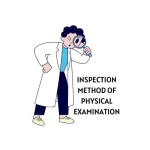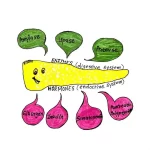Studying for a physiology exam may seem daunting, but fear not! Whether you’re a medical student diving deep into the mysteries of the human body or simply striving to conquer your physiology test, this guide is here to help.
We’ll break it down into simple steps and provide expert tips, all while answering your most common questions.
Here are the BEST BOOKS TO STUDY PHYSIOLOGY FOR 1st YEAR MEDICAL STUDENTS, do not forget have a look at this post.

Table of Contents
ToggleGETTING READY FOR SUCCESS
Crafting Your Perfect Study Nook
- Imagine a cozy corner where you can get lost in the world of physiology.
- Find a comfy, well-lit spot, and gather your study buddies: textbooks, notes, and the works.
- Your study space matters more than you think!
Decoding Your Syllabus
- Your syllabus is your secret map through the jungle of your course.
- Take a good look at it.
- What topics will be covered?
- Make a study plan that follows this roadmap.
The Art of Time Management
- Time is your most valuable asset.
- Create a study schedule that suits you, and remember to take short breaks.
- Avoid burnout by dividing your study time into manageable pieces.
ACTIVE LEARNING PAYS OFF
Dive into Active Learning
- Imagine you’re piecing together a puzzle.
- Instead of just reading, actively engage with your material.
- Explain tricky concepts to yourself or an imaginary friend.
- This makes your learning more memorable.
Conquer Challenges with Problem-Solving
- Physiology is all about solving nature’s riddles.
- Work on problems and answer questions related to your material.
- This helps you understand better and prepares you for similar questions in the exam.
VISUAL AIDS AND MIND MAPS
Embrace Visual Learning
- Our bodies are amazing, and visuals can help us understand them better.
- Use diagrams, charts, and mind maps to visualize complicated processes.
- If you can’t find any, create your own.
- The act of making them helps you understand.
FLASHCARDS AND SMART REPETITION
Master Essentials with Flashcards
- Flashcards are your best buddies for memorizing important terms and facts.
- Create flashcards and use spaced repetition – revisiting information at intervals – to reinforce your memory.
POWER OF STUDY GROUPS
Team Up for Success
- Learning doesn’t have to be lonely.
- Join or form study groups with your pals.
- Teach each other, discuss tricky topics, and quiz one another.
- You’ll be surprised how much you can learn together.
EMBRACE ONLINE LEARNING
Tap into Digital Resources
- In today’s digital world, education is just a click away.
- Websites like Khan Academy and YouTube offer amazing physiology tutorials.
- They provide alternative explanations and visuals to make things click.
MASTERING PRACTICE QUESTIONS
Practice Makes Perfect
- Each practice question is a step closer to acing your exam.
- Solve questions from your textbooks or online sources.
- Practice exams are like dress rehearsals for the big show – use them wisely.
TAKING BREAKS, THE RIGHT WAY
Recharge with Short Breaks
- Don’t wear yourself out.
- Take short breaks during your study sessions.
- Get some fresh air or move around to recharge your brain.
NOURISHMENT, HYDRATION, AND SLEEP
Fuel Your Brain and Body
- Your body affects your brainpower.
- Stay hydrated and eat balanced meals with brain-boosting foods like fruits and nuts.
- Limit caffeine and sugar to avoid crashes.
The Magic of Sleep
- Your brain loves sleep.
- Aim for 7-9 hours a night, especially before the exam.
- A well-rested brain remembers better.
PRACTICE WITH PAST EXAMS
Get Exam-Ready
- If you can get your hands on past exams or sample questions, do it!
- They’ll give you a feel for what to expect.
- Practicing with them helps you become familiar with the format.
MINDSET AND STRESS BUSTING
Believe in Yourself
- A positive mindset is your superpower.
- Visualize success, focus on your goals, and ditch self-doubt.
- You’ve prepared well, so trust yourself.
Keep Stress at Bay
- Stress and anxiety can be annoying rivals.
- Arm yourself with stress-busting tools like deep breathing, meditation, or mindfulness.
- They’ll help you stay calm and collected.
REVIEW AND SELF-CHECK
Reinforce with Regular Reviews
- Periodically revisit what you’ve learned to strengthen your memory.
- Repetition is the key to understanding and remembering.
Test Your Knowledge
- Challenge yourself with quizzes and practice exams.
- It’s like a friendly match before the big game.
- It helps you spot your weak spots and improve them.
WHEN IN DOUBT, ASK!
Seek Help When Needed
- If you’re stuck on something, don’t hesitate to ask for help.
- Approach your professor, classmates, or check online forums and educational websites.
- There’s no shame in seeking clarity.
NAILING TEST-TAKING STRATEGIES
Be a Test-Taking Pro
- During the exam, read the questions carefully and manage your time wisely.
- Start with the easy ones, gain confidence, and tackle the tough ones later.
- Review your answers if time permits, but don’t overthink.
STAYING CALM IN THE EXAM STORM
Manage Exam-Day Jitters
- Feeling nervous is normal, but don’t let it overwhelm you.
- Take deep breaths if you feel anxious.
- Focus on one question at a time, and trust your preparation.
CELEBRATING YOUR JOURNEY
Acknowledge Your Hard Work
- After the exam, take a moment to pat yourself on the back.
- Regardless of the outcome, you’ve put in the effort.
- Understanding physiology is a big achievement in itself.
FAQS – YOUR BURNING QUESTIONS ANSWERED
How can I improve my memory for physiology concepts?
To boost your memory, revise regularly, actively engage with the material, and use tools like flashcards. Test yourself to reinforce what you’ve learned.
What are some good physiology textbooks?
Popular physiology textbooks include “Guyton and Hall Textbook of Medical Physiology” and “Vander’s Human Physiology.”
How do I stay motivated during long study sessions?
Break long sessions into smaller, manageable chunks. Reward yourself after each one. Remember why you started studying physiology in the first place.
What study aids are best for visual learners?
Visual learners should use diagrams, charts, and mind maps. Look for resources with visuals or create your own.
How can I manage my time effectively while studying for a physiology exam?
Manage your time with a study schedule, clear goals, and the Pomodoro Technique. This technique uses focused study sessions followed by short breaks to enhance productivity.
CONCLUSION – YOUR PATH TO SUCCESS
Studying for a physiology exam might seem like a challenge, but remember, every step you take gets you closer to mastery.
Trust in your abilities, stay positive, and embrace the journey.
Success is not just about the score; it’s about the knowledge you gain along the way. Good luck!













Leave a Reply